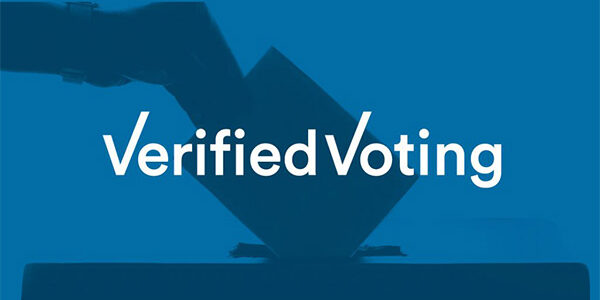Dear Chair Atterbeary and Members of the Committee:
My name is Mark Lindeman, policy and strategy director of Verified Voting. Verified Voting’s mission is to strengthen democracy for all voters by promoting the responsible use of technology in elections. Since our founding in 2004 by computer scientists, we have acted on the belief that the integrity and strength of our democracy rely on citizens’ trust that each vote is counted as cast. As such, we again welcome and support HB 572, which would replace Maryland’s current manual ballot tabulation audits with risk-limiting audits in statewide elections. Simply put, risk limiting audits can help Maryland election officials efficiently show that reported winners really got more votes.
Risk-limiting audits and other manual audits address two distinct challenges to U.S. elections: the rise of unsupported accusations that vote counts are rigged, and the possibility of technology failure or subversion. Bypassing arguments about whether vote counts are trustworthy, well-designed audits provide routine, efficient, and timely quality assurance. They take a “show, don’t tell” approach to confirming vote counts by manually examining a representative sample of voters’ paper ballots.
More specifically, risk-limiting audits (RLAs) are designed to efficiently confirm that one or more election outcomes match what a full hand count of those ballots would reveal, before results are certified. By design, RLAs end in one of two ways: either they provide strong evidence that the ballots confirm the reported election outcomes, or if necessary in extraordinary cases, they lead to a full hand count to determine the correct outcome. RLAs often require far less work than audits of a fixed percentage of ballots – such as Maryland’s current manual audit, which can occur months after an election.
Risk-limiting audits have been widely endorsed by security specialists and election officials. In fact, risk-limiting audits and other robust post-election audits have been recommended by the American Statistical Association, U.S. Department of Homeland Security, the U.S. Senate Select Intelligence Committee, and many other experts as one element of a strong and resilient election infrastructure. Election officials across the country have taken the lead in piloting and implementing RLAs. Virginia is phasing in a new law requiring risk-limiting audits, joining Colorado, Georgia, and Rhode Island. Pennsylvania and Michigan both have trialed statewide RLAs. I have had the privilege to work with election officials on many of these implementations.
HB 572 takes a wise approach to enacting risk-limiting audits in Maryland, establishing broad requirements without micromanaging details. It requires auditing at least one statewide contest as well as at least one local contest in each county. It requires RLAs to be conducted by hand, to be observable by the public, to follow regulations to be promulgated by the State Board, and to be completed before results are certified – with the results promptly reported. All these requirements will promote public confidence in Maryland elections. Sensibly, the bill provides that the audit method should be specified in regulation, not in law. New approaches are continually being developed to fit the varied needs and circumstances of election officials around the country. Maryland election officials deserve room to adapt and innovate.
We applaud you for considering this bill and encourage you to support it. We would be delighted to discuss these topics with committee members, election officials, and other Maryland stakeholders.
Respectfully,
Mark Lindeman
Policy & Strategy Director, Verified Voting
